MXA INTERVIEW: DONNIE HANSEN ON HIS BITTERSWEET CAREER
BY JIM KIMBALL
DONNIE, WHAT DO YOU FEEL ARE THE BIGGEST CHANGES IN SUPERCROSS IN THE LAST 30 YEARS? The biggest change is in the bikes—the bike development and the tracks that go with the bikes. The 450 four-strokes are so much faster than during my era of 250 two-strokes. There is a downside of continual improvements, and that is when those guys get off now, they are going faster, and getting thrown on the ground is a little more serious.
YOU WENT FROM FULL PRIVATEER TO FACTORY RIDER REALLY FAST, DIDN’T YOU? Well, for me, it was having good people around me and good equipment. During my first year on the circuit, or even leading up to being on the circuit, I felt that I surrounded myself with good people. I was on some fast equipment, which got me a factory ride with Honda. With Honda having the equipment they had, and the people that surrounded me, I was able to start doing well right away. But, overall, my racing career was bittersweet—1980 was my first year, and 1982 was my last year. I won everything in my last year. My first year was my learning year. I had to learn all the tracks. All of the other factory riders had been to them multiple times. You have to learn how to race each track. So, even with that said, in my first year I hurt myself. I finished eighth my first year in the Premier class in Supercross, but I injured my ankles and was not able to finish out my season.
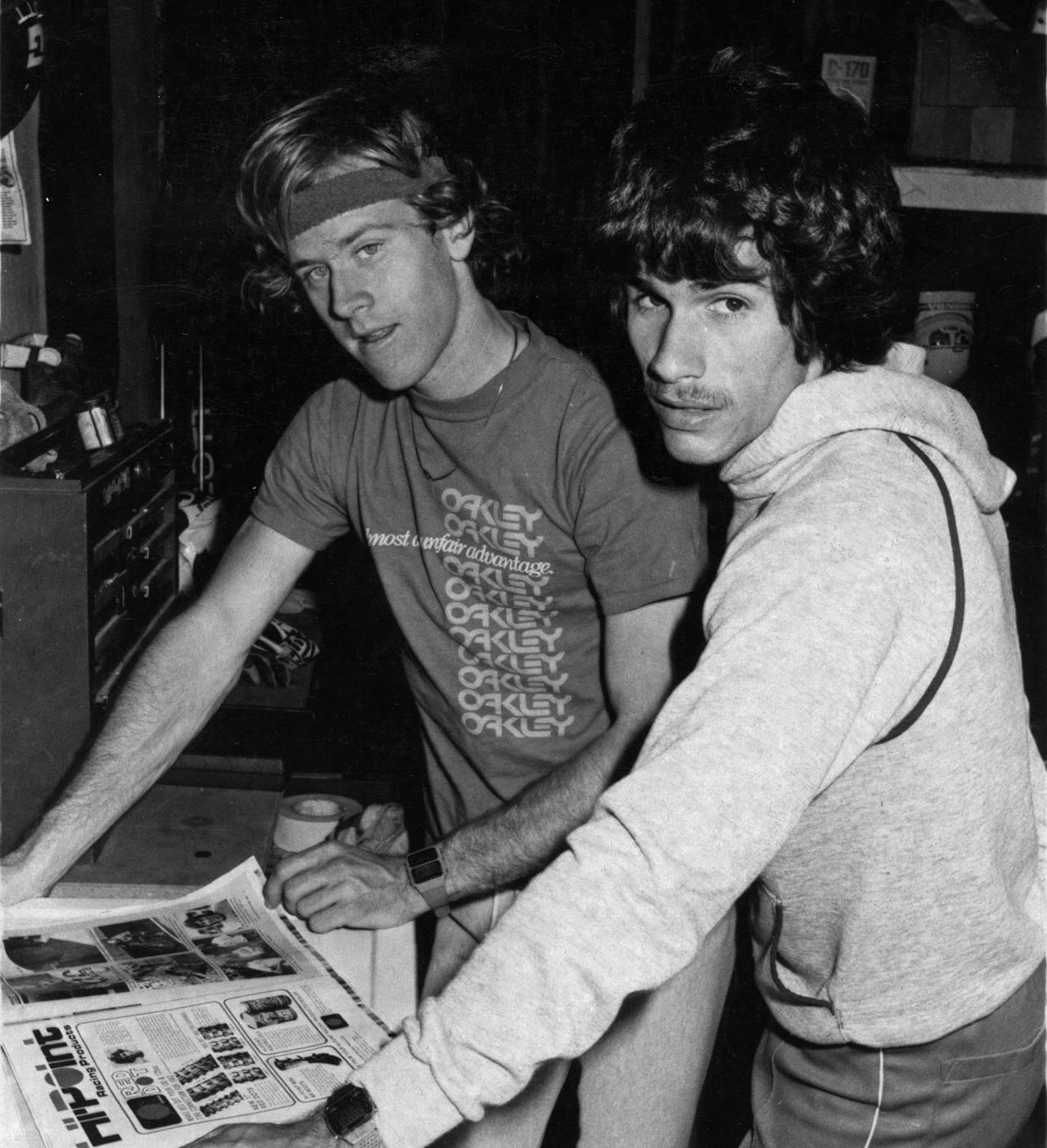 Johnny O’Mara and Donnie Hansen.
Johnny O’Mara and Donnie Hansen.
THINGS DEFINITELY IMPROVED THE FOLLOWING YEAR. In 1981, I knew the Supercross tracks now, as it was my second year. I knew how fast the riders were, and I finished sixth in the premier class. In the outdoors, I adapted quickly now that I knew the tracks like the back of my hand. Also, after two years of racing with these guys, I knew how skilled they were. Johnny O’Mara and I became quick friends. I moved out of my parents house. He moved out of his parent’s house, and I bought my first house where he rented a room from me. We trained together a lot. We pushed each other and, even in the off-season, we kept training hard. We raced locally in Southern California to keep competitive.
“MY WORST SUPERCROSS WAS A SIXTH. I WON FOUR TIMES AND MADE THE TOP FIVE 10 TIMES.”
WHEN DID IT ALL START PAYING OFF? When the 1982 Supercross season started, we were both mentally and physically strong. As it turned out, I won Anaheim, and Johnny finished third behind Wardy. That boost of confidence went into the next week in Seattle, where I won the next race. I stayed consistent, rode smart, and did not throw away the Supercross Championship. I had a good start to the series. I was still winning as much as I could, but I stayed consistently up near the front throughout the series to clinch it. My worst Supercross was a sixth. I won four times and made the top five 10 times. As it turned out, I clinched the Supercross title one race premature.
WHICH LED TO THE AMA 250 NATIONALS. I rode really well in the 1982 250 National outdoor series but had two DNFs in two different motos. One was at St. Pete, Florida, where I got a flat tire and couldn’t finish. The other was Saddleback, where Broc Glover and I were racing for the lead. Coming through a rhythm section, I saw the yellow flag at the end of the section, indicating that someone was down. I was on one line and Broc was on the other line. The guy that crashed happened to be in my line. I landed on him, crashed, and smashed my bike, so I had a DNF there. Going into the last race of the season in Colorado, I was 20 points behind Ricky Johnson. I knew I was not going to win the series, but I was going to win the last event. And as it turned out, I won the first moto and Ricky, his first year in the AMA Pro circuit with Team Yamaha, was trying to catch us, and he over-jumped a jump. His wheel exploded and he finished outside the top 20. At the finish line, they told me I was leading the series going into the last moto of the season. All I had to do to win the 250 National Championship was finish in the top three.
HOW DID YOU DO IN THE SECOND MOTO? I got the start, but I heard someone right behind me. It was Glover. I let him go by and dropped in behind him. I was playing it smart. I didn’t want to throw the championship away—all I wanted to do was finish third. Finally, another rider caught me, and I decided to let him go by, but when he pulled up next to me, we looked over at each other, it was Ricky Johnson. I just let him go. He finished second and I finished third, and that was enough to win the championship. Ricky should have won that championship, but he wanted to catch Broc and me instead of letting us go in moto one. But it worked to my advantage, so it was pretty good. I felt great the whole year, the whole season.
WHEN THE 1982 AMA SEASON WAS OVER, YOU HEADED TO EUROPE FOR THE SWEDISH GP AND THE MXDN. Sweden was unreal. I was stoked. I won both motos, and that was the weekend that Danny LaPorte clinched the World Championship title for himself. He beat out George Jobe. Both great competitors, but, fortunately for me, I won both motos by over 20 seconds.
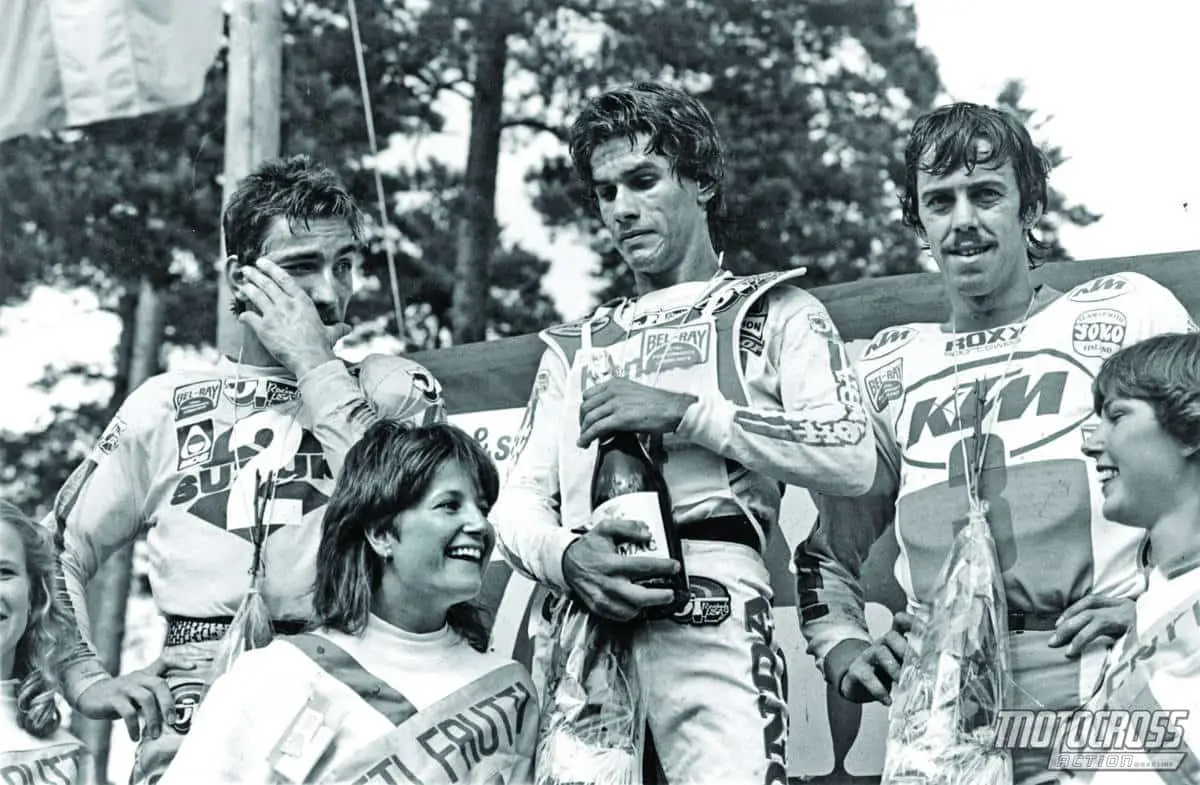 Georges Jobe, Donnie Hansen and Kees van der Ven on the podium in Sweden four days before his career ending crash.
Georges Jobe, Donnie Hansen and Kees van der Ven on the podium in Sweden four days before his career ending crash.
THE NEXT WEEK YOU HEADED TO GERMANY TO GET READY FOR THE MXDN. I was thrilled to represent the USA at the Trophee and the Motocross des Nations. I was on the first USA team to ever win it the year before, so I wanted to win it again. Strangely, there was one final Supercross race yet to be held. It wasn’t scheduled until November in San Diego, but I had already clinched the Supercross title. So, I went to Europe to race the last 250 Grand Prix in Sweden and to get ready for the Trophee and Motocross des Nations.
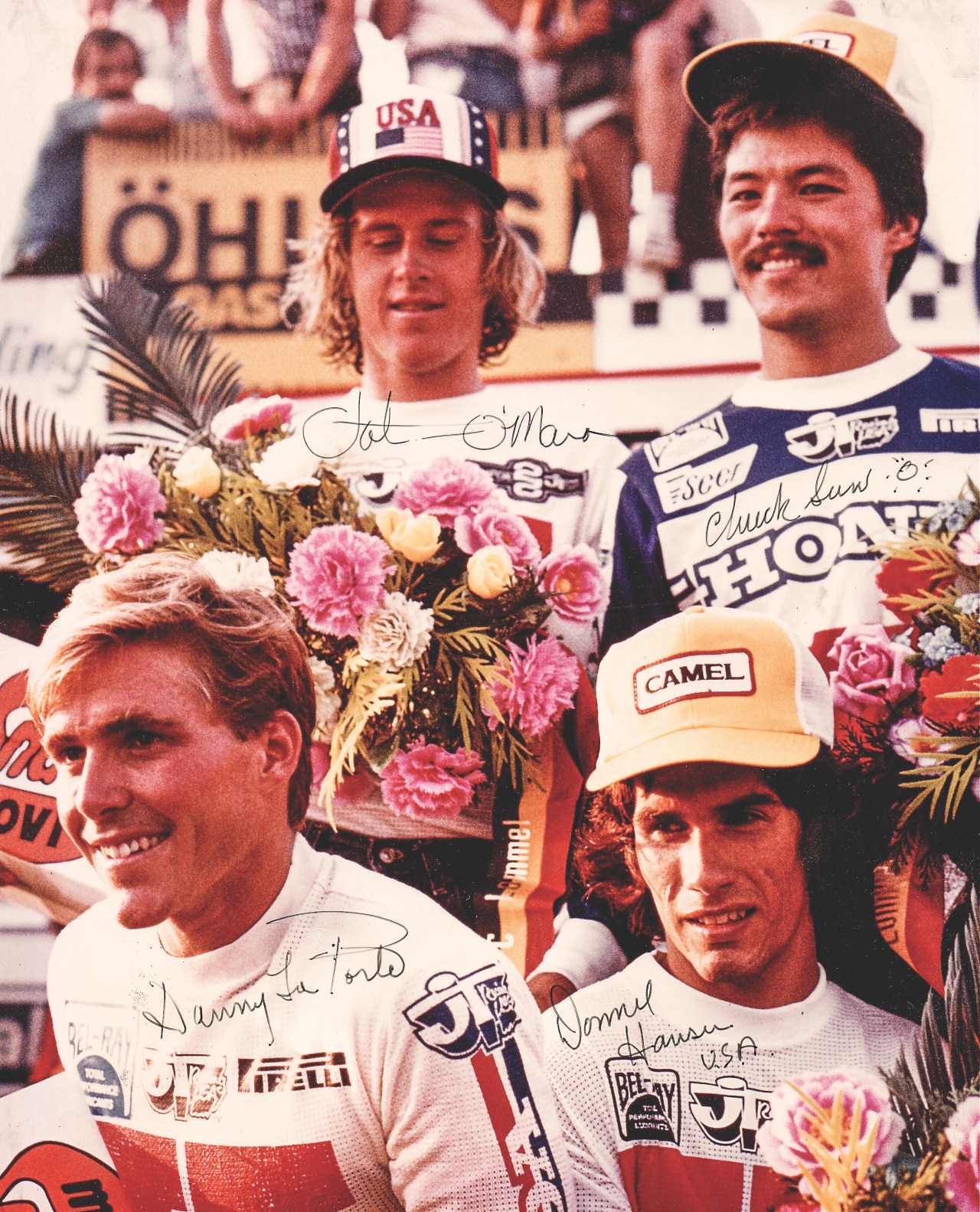 Donnie (lower right) with Danny LaPorte, Chuck Sun and Johnny O’Mara on the podium at the 1981 Motocross des Nations.
Donnie (lower right) with Danny LaPorte, Chuck Sun and Johnny O’Mara on the podium at the 1981 Motocross des Nations.
YOU WERE PRACTICING ON THE LATE ROLF DIEFFENBACH’S TRACK WHEN YOU CRASHED. Yes. I had a real bad head concussion. I had to learn to walk and talk all over again. It took me some time. I tried coming back to racing, and I wanted to get back to racing, but I had lost my timing, lost my depth perception and lost my balance. When I realized that I was wasting everyone’s time, including my own, I said, “I am done racing professionally.”
DO YOU THINK THAT A MODERN HELMET MIGHT HAVE SAVED YOUR CAREER? Well, I wore Bell helmets, and they were the best helmets made back then; but, compared to the helmets of today, they were nothing. With what the riders have available these days, I may have been all right. I can’t say for sure.
“THE WAY I LOOK AT IT IS THAT I WENT OUT AS NUMBER ONE. I WAS CONSIDERED ONE OF THE BEST, SO I COULD LEAVE THE SPORT WITH A SENSE OF SATISFACTION.”
THAT MUST HAVE BEEN DEVASTATING. Well, actually, it wasn’t. The way I look at it is that I went out as number one. I was considered one of the best, so I could leave the sport with a sense of satisfaction. Maybe if I had not won the 1981 MXDN, 1982 Supercross Championship and 1982 250 National Championship, it would have been a little different. I’m happy to pass on the information I learned to new riders to help them try to achieve what I achieved in the sport.
DO YOU FIND IT DIFFICULT TO CONVEY TO THE YOUNGER GENERATION WHAT THEY NEED TO DO? It can be a little tough with some of them because they have that “I know, I know” attitude versus wanting to learn what they don’t know. But, once I get to know them and talk to them at their level, you can see the difference in their riding. A little education goes a long way.
TELL US ABOUT YOUR SON JOSH. HE IS SO NATURALLY TALENTED. He came close to winning a championship twice. The first year he tied with Grant Langston when they were both riding Red Bull KTM. He tied for the championship, but he lost out because Grant had more wins that year than Josh did. The other one he came close to was when he was riding for Mitch Payton at Pro Circuit Kawasaki. He crashed in the whoops in practice, knocked himself out and broke his hand. The medics said that they were not going to let him race because he hit his head. He started tearing up and said, “I can’t let this championship go.” The medic said, “Okay, I am going to give you two words. Leave here for 10 minutes, and when you come back, you tell me what the words are.” Josh passed that test. Then the medic said, “We are going to take a stress test of your head. We are going to go back to the Pro Circuit pits and get on a stationary bicycle for 25 minutes and see how your head holds up.” Josh passed that. Then the medic said, “Okay, sign these waivers that you are not going to sue us, because, if you go down and hit your head again, you are not going to wake up.” So, as the parent, I signed the waivers. They gave him a shot in his hand and wrapped it up. He had two hours before the actual racing started. I told Josh to try for a top 10, and then he would have a week off before Seattle. After Seattle, he would have almost two months off. During that time, he could get his hand fixed and still have time to get riding before the series picked up again.
Josh said, “Forget the top 10; I’m going to win.” I thought his head was still foggy, but two hours later he went out and came away with the win. Unfortunately, in Seattle he crashed in the whoops. He had more damage and it just went downhill after that. Tickle had won the series and Josh ended up fourth. So, those two years were his best chances, but he came up short. He has won several X Games gold medals, a couple bronzes, and a couple of silvers. Now he is 38 years old and has slowed down. He has a daughter, and he understands how important that is.
WAS JOSH HIS OWN WORST ENEMY? Josh is going to do things his way or how he thinks he should do it, and you can’t steer him any other way. If I were to tell him, which I have, as well as many other well meaning people, that he had to work harder, he would say that he did not want to work too hard because he wanted to be pumped and excited on race day. He does not look at things how I looked at it, how David Bailey looked at it or Johnny O’Mara looked at it. I believe that hard work during the week makes it easier for you on race day. He didn’t see it that way, and because of that, I believe he did not get any championships.
DO YOU STILL GO TO THE NATIONAL AND SUPERCROSS RACES? I do. I love the competition. I love watching the best riders in the world perform. You can learn a lot by just observing the best. I have been trying to educate Amateur riders to the best of my ability for 34 years, and I really enjoy it.



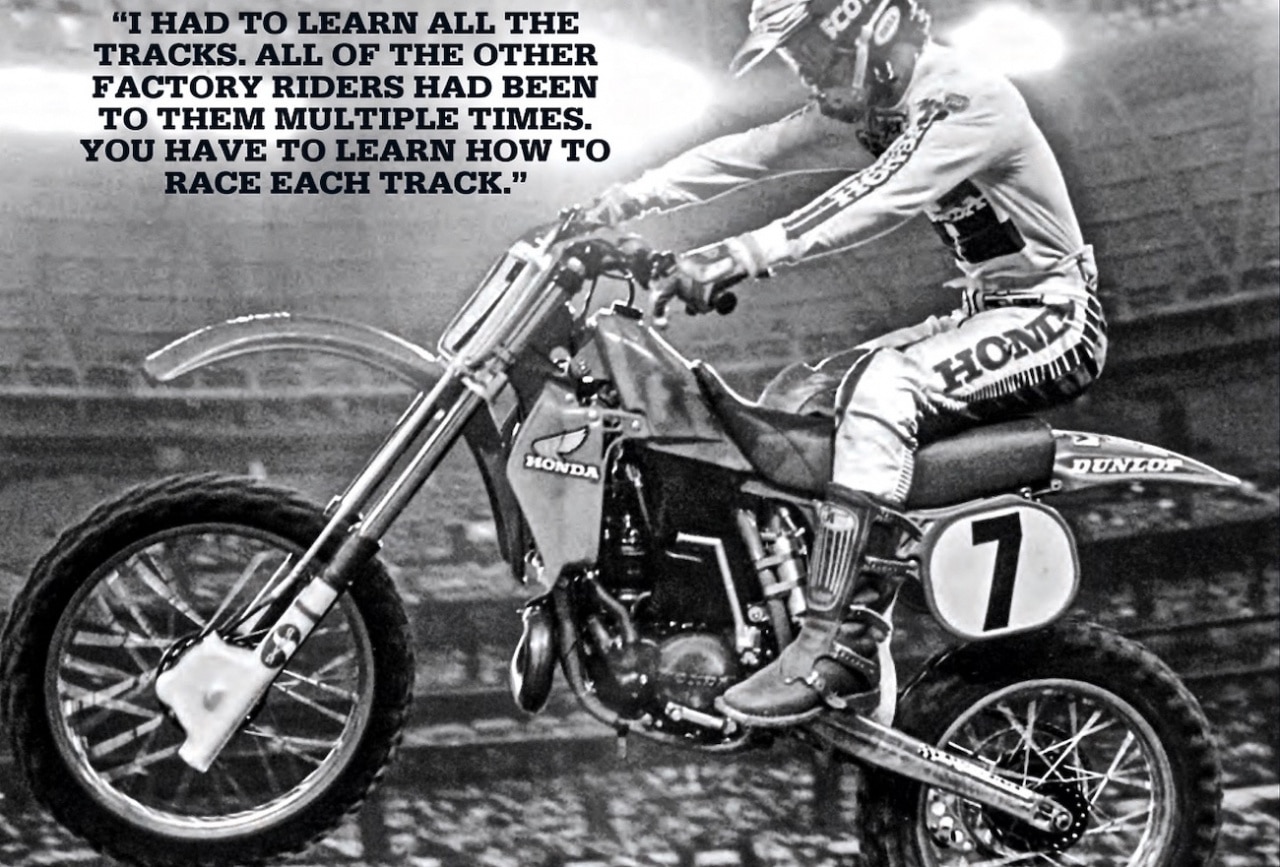
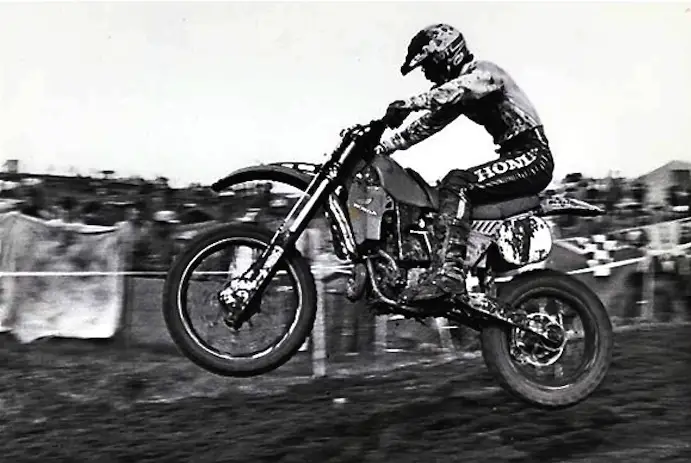
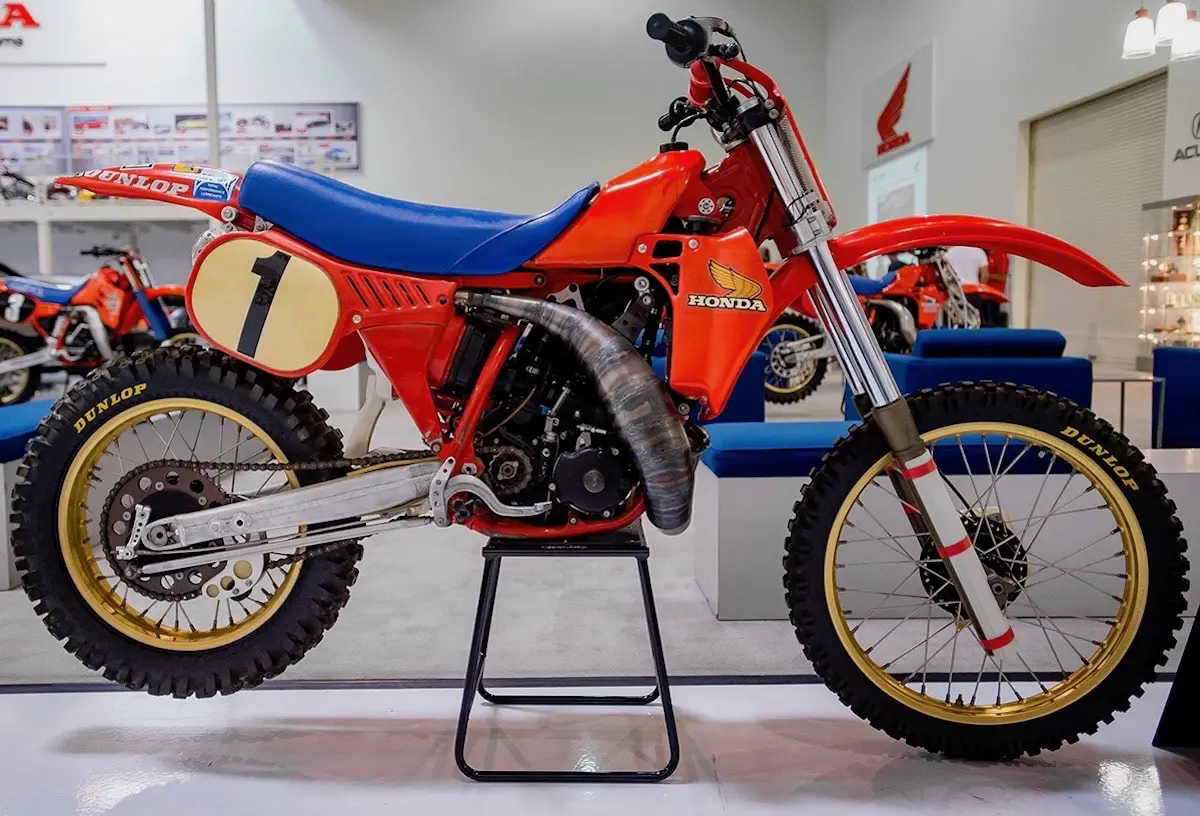
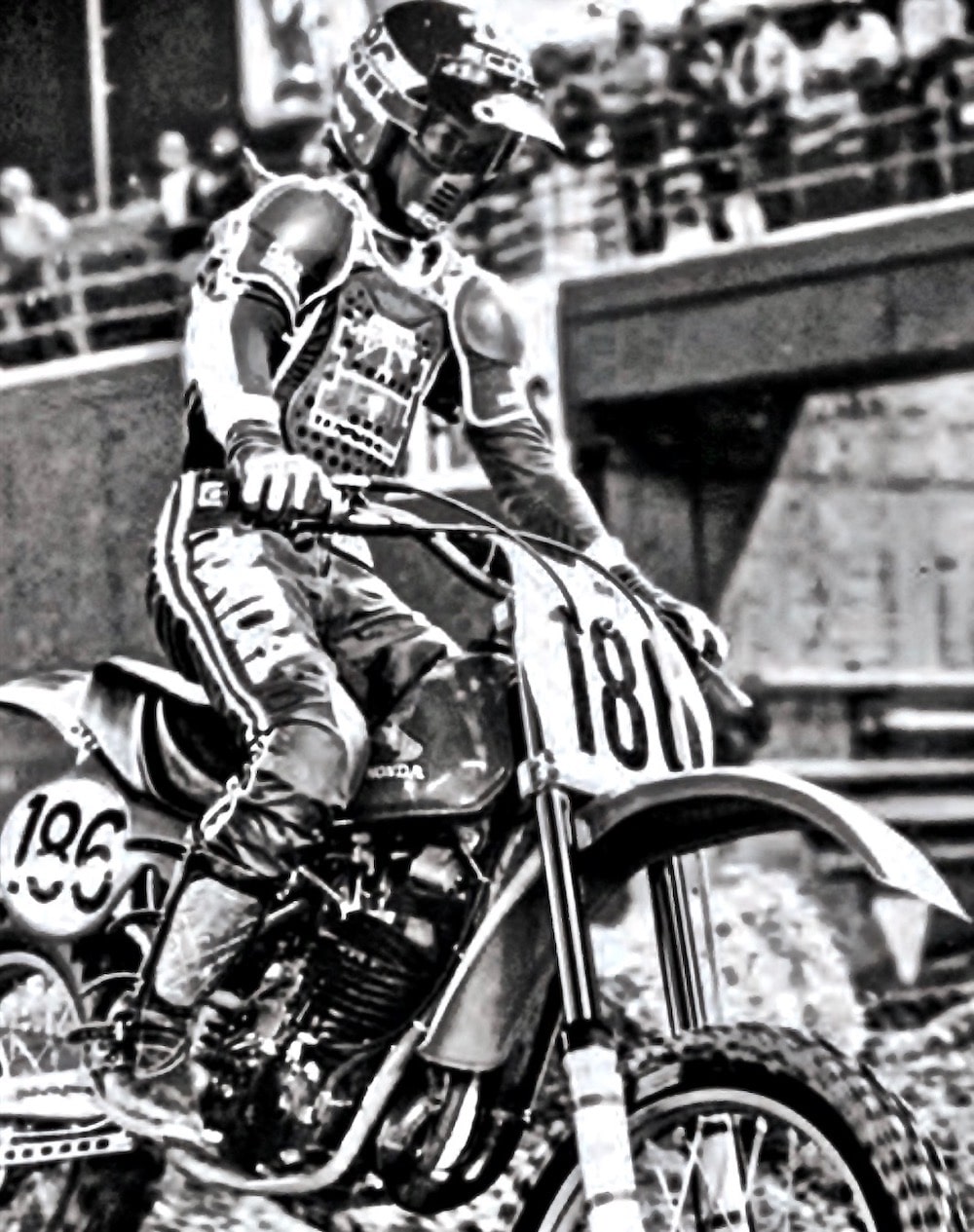
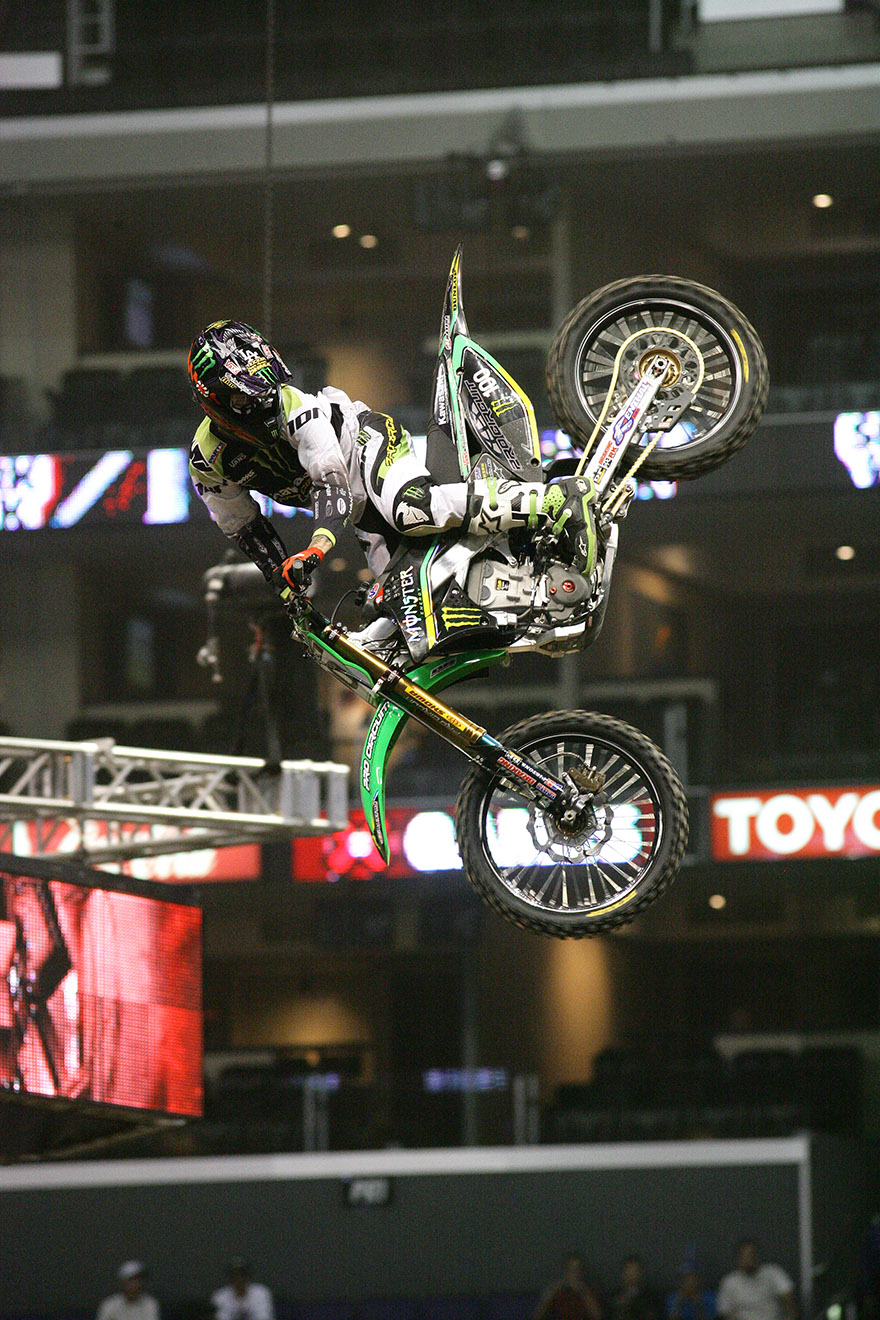
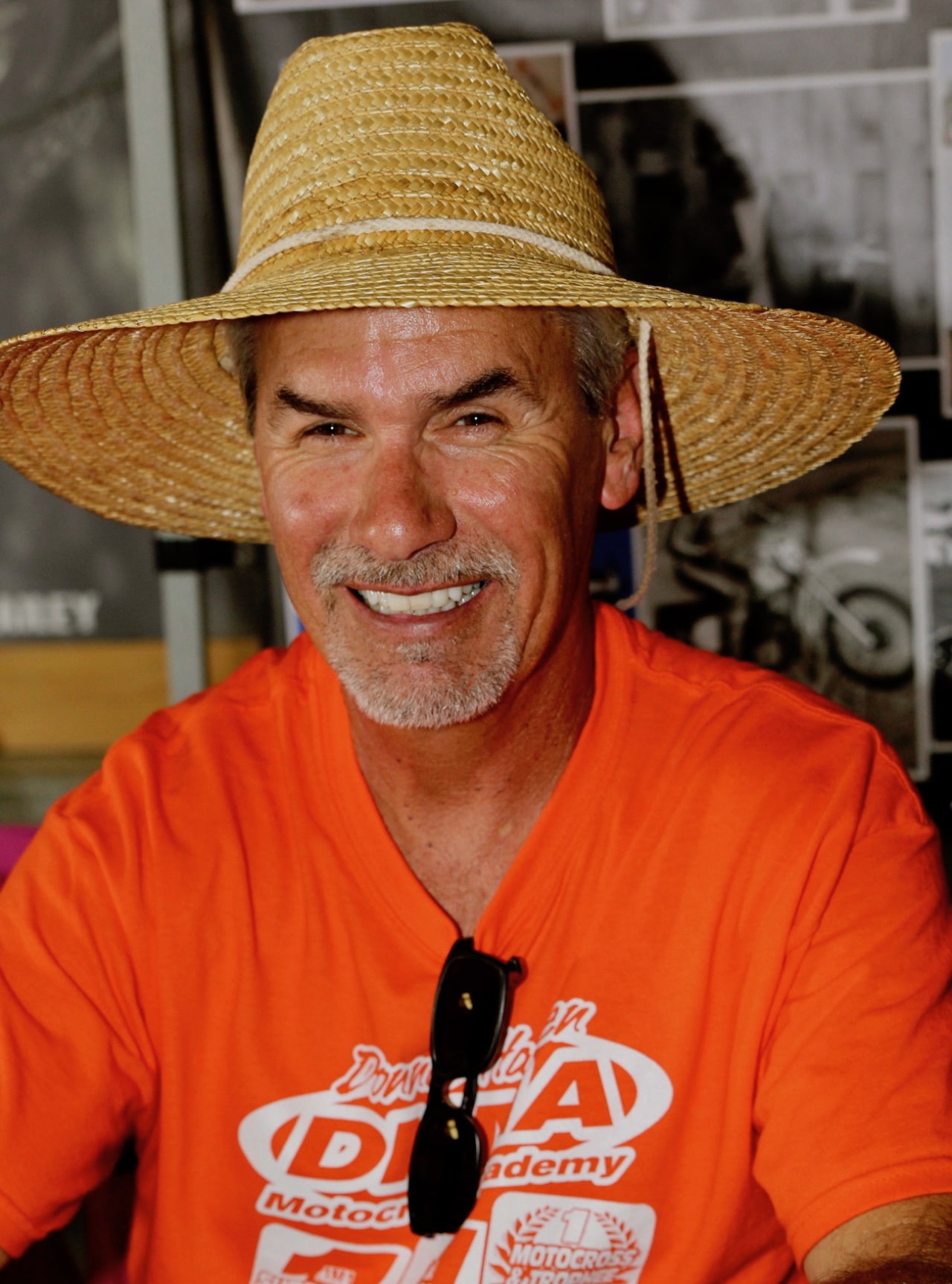



Comments are closed.